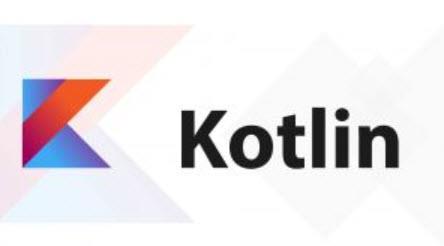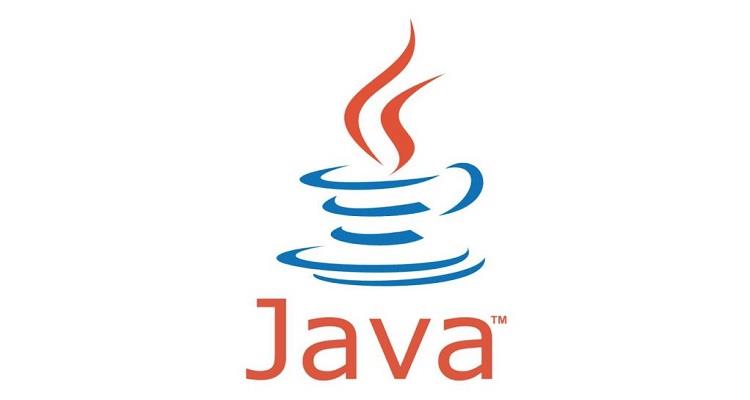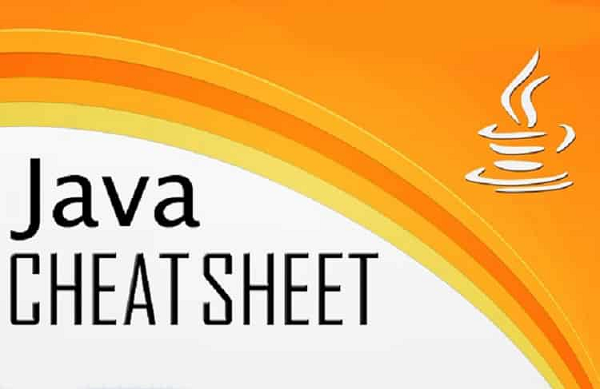Java, the possible Internet programming king

Built for embedded computing and streamlined for real-time, here's why Java is the language of 'Internet of Things'.
Over the years, the Java programming language had become a significant option of programmers across the world. In spite of several programming languages leading the internet programming industry, there are bright chances for Java to emerge as the King of Internet programming in the near future. Revolutionizing the world of embedded computing, here are the reasons why Java will eventually become Internet of Things.
Nineteen years ago David L. Ripps wrote a JavaWorld introduction to Java for embedded systems. Ripps' article is still good reading today, especially if you want to understand how embedded systems programming interacts with connected mobile devices and the Internet of Things. Complementary technologies that enable Internet programming are coming online now. HTTP/2 is a crucial networking protocol that has been updated, in part, to accommodate machine-to-machine communications. Thingsee is an example of a developer kit for the kind of hardware that Internet of Things will demand.
Silicon Valley sage Tim O'Reilly has emphasized that the result will not be just the usual caricature of pointless connections from coffee machines or refrigerators to the 'Net at large. With enough sensors and automation, Internet of Things is really about human augmentation. Java will be a workhorse in that coming disruption.
How Internet of Things works
In September 2014, Andrew C. Oliver wrote that at an implementation level Internet of Things is about teamwork. In this case, the teamwork involves both humans and computers.
As devices communicate not just with human consumers, but with other devices, fundamentally new capabilities emerge. It's not only that your refrigerator will know you have run out of tomatoes, but that it can place an order for more on your behalf. The success of pervasive computing will be that it recedes into the background, working out facts and events and remedies with other connected devices. Only executive-level results will be communicated to human consumers. The triumph of Internet of Things will be in all the things that we no longer have to think about, even as they are seamlessly done for us.
Java for embedded computing
Few people today realize that Java began as a language for embedded computing. Its earliest versions specifically targeted home appliances such as television set-top interfaces. Communication between devices was central to James Gosling's original vision for Java, and he envisioned it being used for not only device-to-consumer but device-to-device communication. Twenty years later, those original design strengths are ready to support the Internet of Things.
Isn't Java too big for embedded systems?
Java wasn't always a viable first choice for embedded systems, mainly because embedded devices are often stingy on computing resources. Assembler, C, and even Python have fared better in systems with constrained memory, CPU power, or other hardware issues. This objection has largely faded away in the past few years, however, as the average size of an embedded environment has grown. Resource requirements have also shrunk with the introduction of new techniques for compiling Java for embedded environments.
Find a course provider to learn Java
Java training | J2EE training | J2EE Jboss training | Apache JMeter trainingTake the next step towards your professional goals in Java
Don't hesitate to talk with our course advisor right now
Receive a call
Contact NowMake a call
+1-732-338-7323Take our FREE Skill Assessment Test to discover your strengths and earn a certificate upon completion.
Enroll for the next batch
Advanced Java and Java spring boot Hands-on Training with Job Placement + Internship
- Jan 19 2026
- Online
Advanced Java and Java spring boot Hands-on Training with Job Placement + Internship
- Jan 20 2026
- Online
Advanced Java and Java spring boot Hands-on Training with Job Placement + Internship
- Jan 21 2026
- Online
Advanced Java and Java spring boot Hands-on Training with Job Placement + Internship
- Jan 22 2026
- Online
Advanced Java and Java spring boot Hands-on Training with Job Placement + Internship
- Jan 23 2026
- Online
Related blogs on Java to learn more

Java in 2026: Why This ‘Old’ Language Is Still Your Golden Ticket to a Tech Career (And Where to Learn It!
Think Java is old news? Think again! 90% of Fortune 500 companies (yes, including Google, Amazon, and Netflix) run on Java (Oracle, 2025). From Android apps to banking systems, Java is the backbone of tech—and Sulekha IT Services is your fast track t

Unlock the Power of Java: Build Your Future in Tech
"Discover Java's power and versatility with Sulekha Tech Courses. Find expert-led training near you and unlock career opportunities in software development, Android apps, and big data."

How to deploy Java applications on cloud platforms like AWS and Azure?
Learn how to deploy Java applications on cloud platforms like AWS and Azure
Want to Earn 6 Digit Salary in Java Profession – Learn Java Cheat Sheet Course Online
There are many different online Java cheat sheet courses available, each with its own distinctive features and advantages. One of the most popular and effective Java cheat sheet courses is the Java 7 Essentials course from Udacity. This course is des

Kotlin programming language makes developers happy!
Kotlin is taking the software industry by storm, and it is a cross-platform, statically typed, general-purpose programming language with type inference. Professional trainers with immense experience are training students for years. You can check the

All new Java certification, Complete guide to Java SE 11 Certification
Java has been predominantly reining the kingdom of the IT industry, and in recent times, the TIOBE Index ranked Java as the top-most programming language. Oracle has released a new

Top Websites to Learn Java
Java is among the widely used programming languages in the IT industry. For those, who want to be a programmer or a developer, Java is the right language to start with. It is a general-purpose, object-oriented language which was introduced in 1995 by

All you need to know about Oracle for Java EE SE7!
This comprehensive enterprise software development platform SDK provides support for Java EE 5 specifications and the Java Application Platform SDK features additional runtimes such as Open ESB, Portlet Container, and Sun Java System Access Manager.

Web Development Tools for Java Developers
Java developers are lucky enough to have a wide range of open source and premium tools to develop applications more efficiently and effectively.
Latest blogs on technology to explore

Drug Safety & Pharmacovigilance: Your 2026 Career Passport to a Booming Healthcare Industry!
Why This Course Is the Hottest Ticket for Science Grads & Healthcare Pros (No Lab Coat Required!)" The Exploding Demand for Drug Safety Experts "Did you know? The global pharmacovigilance market is set to hit $12.5B by 2026 (Grand View Research, 202

Launch Your Tech Career: Why Mastering AWS Foundation is Your Golden Ticket in 2026
There’s one skill that can open all those doors — Amazon Web Services (AWS) Foundation

Data Science in 2026: The Hottest Skill of the Decade (And How Sulekha IT Services Helps You Master It!)
Data Science: The Career that’s everywhere—and Nowhere Near Slowing Down "From Netflix recommendations to self-driving cars, data science is the secret sauce behind the tech you use every day. And here’s the kicker: The U.S. alone will have 11.5 mill

Salesforce Admin in 2026: The Career Goldmine You Didn’t Know You Needed (And How to Break In!)
The Salesforce Boom: Why Admins Are in Crazy Demand "Did you know? Salesforce is the 1 CRM platform worldwide, used by 150,000+ companies—including giants like Amazon, Coca-Cola, and Spotify (Salesforce, 2025). And here’s the kicker: Every single one

Python Power: Why 2026 Belongs to Coders Who Think in Python
If the past decade was about learning to code, the next one is about coding smarter. And in 2026, the smartest move for any IT enthusiast is learning Python — the language that powers AI models, automates the web, and drives data decisions across ind

The Tableau Revolution of 2025
"In a world drowning in data, companies aren’t just looking for analysts—they’re hunting for storytellers who can turn numbers into decisions. Enter Tableau, the #1 data visualization tool used by 86% of Fortune 500 companies (Tableau, 2024). Whether

From Student to AI Pro: What Does Prompt Engineering Entail and How Do You Start?
Explore the growing field of prompt engineering, a vital skill for AI enthusiasts. Learn how to craft optimized prompts for tools like ChatGPT and Gemini, and discover the career opportunities and skills needed to succeed in this fast-evolving indust

How Security Classification Guides Strengthen Data Protection in Modern Cybersecurity
A Security Classification Guide (SCG) defines data protection standards, ensuring sensitive information is handled securely across all levels. By outlining confidentiality, access controls, and declassification procedures, SCGs strengthen cybersecuri

Artificial Intelligence – A Growing Field of Study for Modern Learners
Artificial Intelligence is becoming a top study choice due to high job demand and future scope. This blog explains key subjects, career opportunities, and a simple AI study roadmap to help beginners start learning and build a strong career in the AI

Java in 2026: Why This ‘Old’ Language Is Still Your Golden Ticket to a Tech Career (And Where to Learn It!
Think Java is old news? Think again! 90% of Fortune 500 companies (yes, including Google, Amazon, and Netflix) run on Java (Oracle, 2025). From Android apps to banking systems, Java is the backbone of tech—and Sulekha IT Services is your fast track t
